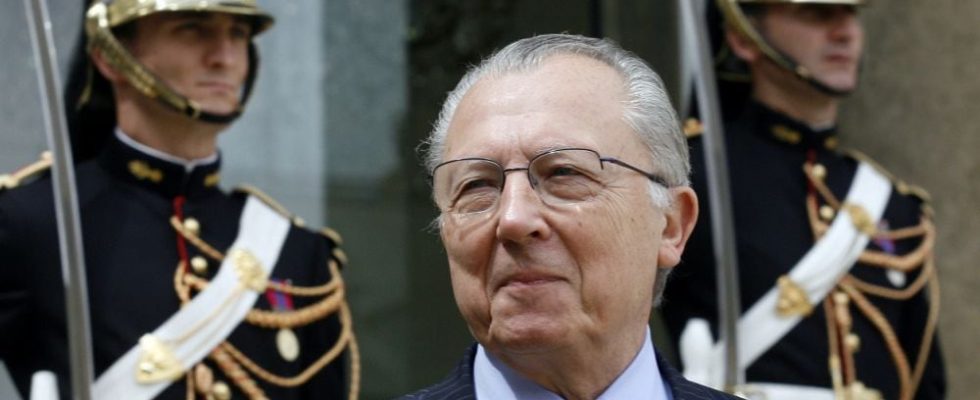Jacques Delors was a century old. On December 27, at the age of 98, the man to whom we owe today’s Europe did not wake up. The date of death completes the clarification of the meaning of a destiny and it is not indifferent that Jacques Delors, historical reference of the French left, diligent activist for liberal and representative democracy, architect of the single market and the euro, has died out at a time when the European continent, for the first time since 1945, is once again the theater of an imperialist war involving a nuclear power. It is not insignificant either that he disappears on the threshold of a zone of strong turbulence: a series of crucial elections, against a backdrop of nationalist-populist waves and a possible questioning of the Alliance Atlantic. 2024 will be a pivotal year for the European Union and for the Western family. If the former iconic president of the Commission had wanted to properly close a chapter in his own world, that of social democracy for which he had fought and of Europe as he had built it, he would not would not have chosen a more symbolic date than the end of December 2023 to bow out.
By another irony of history, Jacques Delors died just a few hours after one of his eminent counterparts: Wolfgang Schäuble who, like him but on the German side, is one of the rare personalities to have profoundly shaped the construction of Europe. Two former finance ministers obsessed with European unity and with a cult of stability and budgetary rigor – which earned them, fleetingly, the indulgence of the ultra-liberal Eurosceptic Margaret Thatcher. Delors, the Minister of Finance whom François Mitterrand had not wanted to appoint to Matignon because “not left enough” for the Socialist Party, saw in the balance of public finances the condition for avoiding the devaluation of the franc, not withdraw from the international game and promote employment. Schäuble, the Minister of Finance whom Angela Merkel had kept at her side after having “assassinated” him, at the same time as former Chancellor Helmut Kohl, in order to gain power, had pushed rigor to the point of registering the “debt brake” in the German Constitution in 2011 and consider, during the debt crisis, that Greece leaves the euro zone, before imposing punitive austerity for which the Greeks have not forgiven it.
Federation of Nations
Unlike Wolfgang Schäuble, Jacques Delors did not make the balance of public finances the alpha and omega of political virtue, nor an obsession to the point of endangering the collective European interest. On the other hand, we forget how much the German conservative and the French social democrat were united in their common ambition of an “ever closer” European Union – but at the wrong time. During his ten years at the head of the European Commission (1984-1995), Delors never stopped working not for European federalism (which would presuppose a common government accountable to Parliament) but for a “federation of nations” . He presided over the creation of the single market and inspired the 1992 Treaty of Maastricht which laid the foundations of the euro.
Delors was completing his two mandates at the Commission when Schäuble published in 1994, with his colleague Karl Lamers, an explosive report recommending strengthening political and economic integration around a “hard core” of countries – France, Germany and Benelux. The France of François Mitterrand and Edouard Balladur declined the proposal. Since then, Germany has no longer shown any integrationist desire while France, which had changed its mind, accused it of selfishness. Such is life.
Second political leg
Jacques Delors, for whom there could be no monetary union without political union – and therefore budgetary union -, was sorry that the EU had not pushed federalism as far as putting in place this “second leg” (political) in order to to ensure “a socially balanced Europe for all”. The one who had worked for the enlargement from 10 to 15 member states will criticize “the functioning of a European Commission of 27” making the founding project inapplicable. His reflection will be missing in 2024, a decisive year for enlargement to Ukraine or the Balkans, as well as for European democracy.
* Marion van Renterghem is a senior reporter, winner of the Albert-Londres prize and author of “Piège Nord Stream” (Arènes)
.
